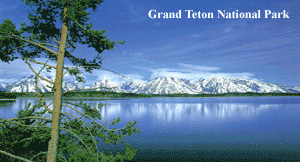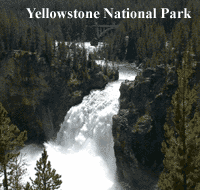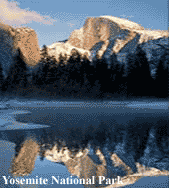 |
 |
 |
 |
 |
 |
 |
| Privacy Policy |
| Disclaimer |
| Terms & Conditions |
SUMMER TRAVEL SERIES: National Parks
The United States of America are exceptionally rich in national parks, these great outdoors areas which seem to transfer every human being into a different land. The sad fact is that not many international students take the time or make the effort to visit some of these real treasures in which nature dumbfounds with its tranquility and splendor. Yet, national parks are well worth visiting, and a great way of making the most out of your stay in the U.S.! Pre-Departure Preparation Before embarking on a journey, a few things should be kept in mind. As usual, research is the first thing to begin with. Where to go first, what's worth seeing, a park's regulations, random costs associated with visiting the park � the answers to all of these questions can be found at www.nps.gov, the official web site of the National Park Service. Even though the web page is somewhat confusing and apparently undergoing reconstruction, it does have exhaustive information on every single park or monument you will ever want to visit. Park and parking maps can be very helpful in planning your trip, so do take a look before you leave! Park Permits and Passes
Camping Since national parks are an outdoors adventure in and of themselves, camping is the best way to extend the day experience into the night. Facilities at camp cites vary widely, and so do their regulations. There is almost always a camping fee, yet some free camp grounds can be found as well. Making a reservation in advance (either online or by phone) is essential, especially in the summer, as camp sites can get rather packed with tourists and adventure- seekers. Plus, any other type of lodging is going to be both more expensive and farther away from the most beautiful areas! Visitor Centers Last, but not least, make sure not to skip the visitor and/or information centers on site. They will have the most current information on weather and road conditions, parking and camping availability, and will give you useful tips on what is worth seeing! Some Famous Parks GRAND CANYON NATIONAL PARK The Grand Canyon in Arizona is perhaps the most breath-taking U.S. national park. The Colorado River has delved one of the deepest canyons in the world, whose erosion-formed vistas are a life-time experience. Most visitors can typically be found on the rim, but going all the way down to the Colorado River is certainly worthwhile. Just plan ahead: bad weather will definitely be a problem in the winter, and you won't be able to go down and come back in one day! YELLOWSTONE NATIONAL PARK The first and oldest national park in the world, Yellowstone spreads over the states of Idaho, Montana and Wyoming. A fact that not many know is that there are more geysers and hot springs in Yellowstone than in the rest of the world combined (which practically means that you don't have to go all the way to Iceland in order to find geysers)! Lake Yellowstone at over 7,000 feet elevation, the Grand Canyon of the Yellowstone River, the Mammoth Hot Springs and the multiple falls and cascades scattered throughout the park can keep you there for a much longer time than you could had predicted.
YOSEMITE NATIONAL PARK
Yosemite National Park in California comprises of an amazing sequence of mountains and valleys in the Sierra Nevada, in which many treasures lay hidden: the world's biggest sequoia trees, the world's fifth-tallest Yosemite Falls with their three levels of drop, the climbers- favorite cliff El Capitan, and much more. The scenery varies so greatly in front of your eyes that you won't ever be able to get bored! OTHER PARKS While the above-mentioned national parks are the most famous in the United States, there are many other ones that are worth seeing: Death Valley, Joshua Tree, Sequoia & Kings Canyon, the Mojave Desert and Lake Tahoe in California; the Great Smoky Mountains in Tennessee and North California; Bryce Canyon and Zion in Utah; the Rocky Mountain in Colorado... Plenty of places to visit, just pack your tent, hit the road, and you'll never regret it!
Sources: www.nps.gov
|
 |
| ||||||||||||||||||||||||||||||
|
| ||||||||||||||||||||||||||||||
Home | About iStudentCity | Job Opportunities | Contact iStudentCity Hall
Copyright©2000-2009, iStudentCity.com. All Rights Reserved.
 Perhaps a less well-known fact is that national parks in the United States are toughly
regulated, with plenty of restrictions and limitations. Thus, there are certain areas within each
park that will not be open to visitors year-round, or roads will be closed depending on weather
conditions. Moreover, you will need a permit in order to enter a national park! Prices vary
depending on the park, and so do permit types (among which individual permits, vehicle
permits, commercial tour permit, water permit, camping permit and so on). Let these not scare
you � you won't need all of them, and they are not that expensive (individual permits are
about $10, car permits � $20)! If you plan on visiting more than just one national park within
a year, then you might want to get the National Parks Pass, an annual fifty-dollar pass that
provides admission to any national park. It's a great way to make your discovery-voyage less
expensive!
Perhaps a less well-known fact is that national parks in the United States are toughly
regulated, with plenty of restrictions and limitations. Thus, there are certain areas within each
park that will not be open to visitors year-round, or roads will be closed depending on weather
conditions. Moreover, you will need a permit in order to enter a national park! Prices vary
depending on the park, and so do permit types (among which individual permits, vehicle
permits, commercial tour permit, water permit, camping permit and so on). Let these not scare
you � you won't need all of them, and they are not that expensive (individual permits are
about $10, car permits � $20)! If you plan on visiting more than just one national park within
a year, then you might want to get the National Parks Pass, an annual fifty-dollar pass that
provides admission to any national park. It's a great way to make your discovery-voyage less
expensive!

